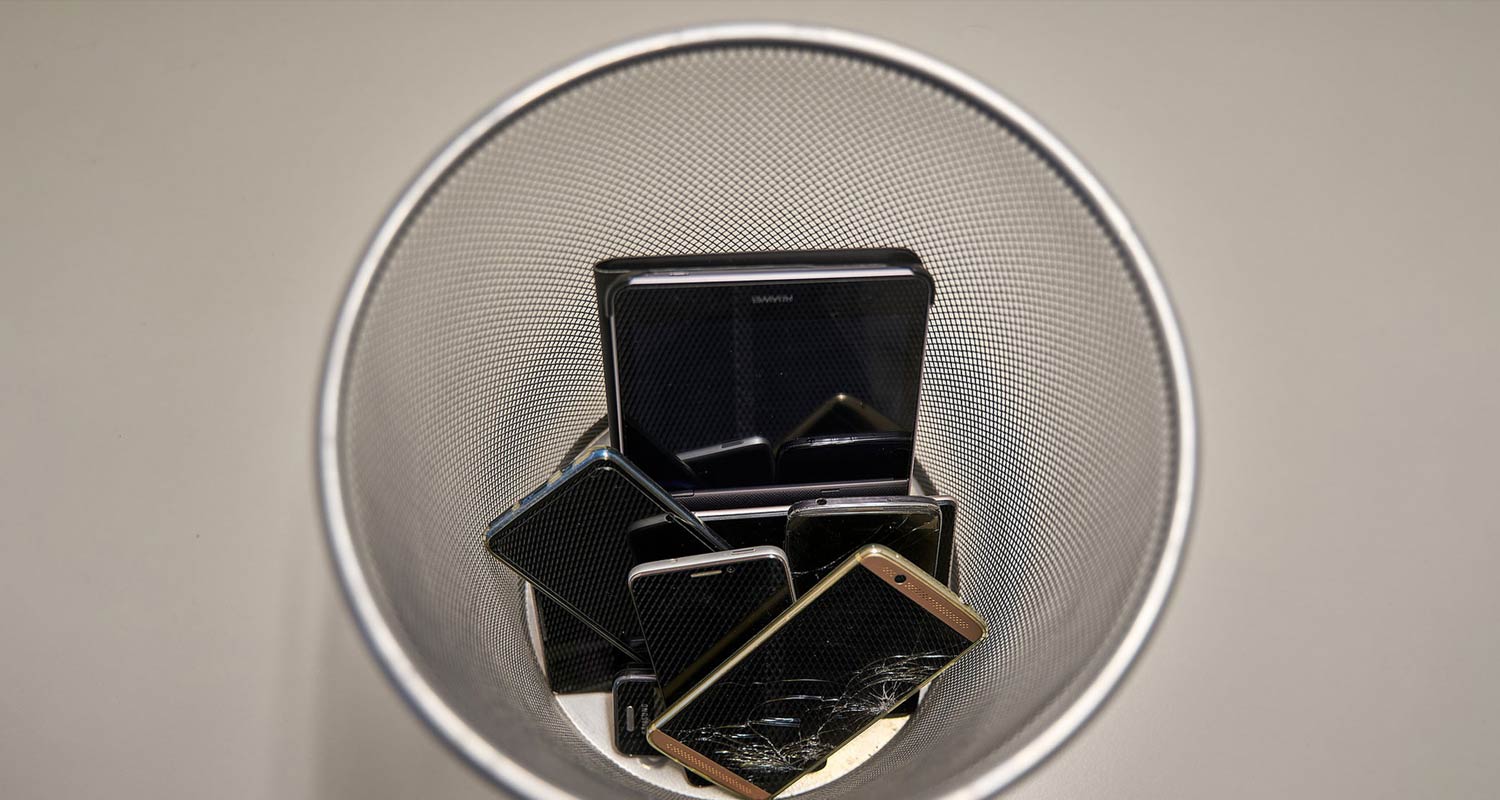 In an era where technology evolves at breakneck speed, the lifespan of mobile devices has drastically shortened. Consumers frequently upgrade their smartphones, often shelving still-functional devices.
In an era where technology evolves at breakneck speed, the lifespan of mobile devices has drastically shortened. Consumers frequently upgrade their smartphones, often shelving still-functional devices.
The GSMA estimates that five billion mobile phones are sitting unused in homes and offices around the world. This trend not only contributes to a burgeoning electronic waste (e-waste) crisis but also overlooks the vast potential of mobile device upcycling – an opportunity to promote environmental sustainability and foster a more inclusive digital society.
E-waste is one of the fastest-growing waste streams globally. According to the UN’s Global E-waste Monitor 2024, a staggering 62 million tonnes of e-waste was produced in 2022, with only 22.3% formally recycled. Discarded mobile phones and other small electronics contribute to this problem, often ending up in landfills where toxic components can leach into the soil and water, posing severe environmental and health risks. It is for this reason that Vodacom’s partnership agreement with the Worldwide Fund for Nature (WWF) seeks to promote a co-developed marine protection ecosystem built on five pillars, including the elimination of plastics.
In South Africa, Extended Producer Responsibility (EPR) regulations are a key policy instrument to address the increasing volumes of plastic and electronic waste. In May 2021, EPR regulations were gazetted in South Africa, which made EPR mandatory in the paper and packaging, electrical and electronic goods, and lighting sectors. According to the department of forestry, fisheries & the environment (DFFE), the implementation of well-designed EPR schemes can advance the circular economy, promote efficient resource use and recovery, and contribute towards pollution prevention with significant environmental, economic and social benefits. These benefits include:
- Reduced demand for virgin materials through appropriate fees that internalise the costs of waste management and targets for product reuse, recycling and use of recycled content. The substitution of virgin material with recovered and recycled waste will ensure sufficient resource availability for current and future generations and mitigate greenhouse gas and other emissions into the atmosphere, promote efficient water use and reduce biodiversity loss and land degradation due to resource extraction.
- The establishment of critical waste collection systems and recycling infrastructure will promote waste diversion from landfills and support economic development in South Africa with the emergence of new green industries, markets for recycled materials and green entrepreneurship opportunities.
- EPR can promote innovative and sustainable business models for waste management, product design for reuse and recyclability, and alternative materials. Importantly, this can promote the competitiveness of local businesses and job creation and livelihood opportunities for many.
In addressing the negative impact of e-waste, there is an urgent need to drive initiatives that support a circular mobile economy. For telcos, circularity means to increase resource efficiency, extending the lifecycle of smartphones by reusing, repairing, recycling and upcycling, and thereby decreasing the volume of e-waste in the environment. In addition, upcycling mobile devices lessens the demand for raw materials. Mining for elements such as gold, cobalt and lithium – critical for manufacturing new devices – can put pressure on natural resources and contribute significant carbon emissions. For every million smartphones upcycled, over 50 000 tonnes of carbon emissions could be avoided. By promoting upcycling, we can reduce the overall ecological footprint of our digital consumption.

Beyond the environmental benefits, upcycling mobile devices can offer an opportunity for societal change. One of the most common barriers to owning a smartphone is the cost. As upcycled mobile devices are often more affordable than new devices, they can drive smartphone penetration, providing the tools needed to access information, education, and financial services. This can empower individuals, fostering digital inclusion and economic participation.
By incorporating upcycling into business models, technology companies can play a pivotal role in contributing to a circular transition and bridging digital divides. This not only helps the environment but aligns with a growing consumer demand for sustainable practices. While demand for new devices remains high, there is already evidence of a budding circular economy within the mobile phone industry, with International Data Corp (IDC) reporting a 10% growth in refurbished smartphone shipments worldwide.
We’ve seen this traction through our RedLovesGreen campaign, which encourages customers to return their devices to any of our 37 repair centres in South Africa. Depending on the make, model and condition of a returned device, it may be repaired, refurbished, resold or sent for recycling. Since 2011, Vodacom’s Advanced Repair Centre (ARC) has processed about 2.9 million devices that were either repaired, reused, refurbished or returned. A total of 346 000 devices were recycled and disposed of in an environmentally friendly manner. We are also actively encouraging customers to consider buying second-life devices. Through the programme, upcycled devices are either certified “Good as New” and sold with a warranty or donated to a Vodacom-supported school to enhance access to digital technology and digital skills. In addition, Vodacom has appointed a Producer Responsibility Organisation (PRO) to implement a user-friendly way in which consumers can dispose of old and unwanted devices responsibly as part of Vodacom’s EPR obligations.
To fully realise the potential of upcycling, our industry needs to work together with governments, other businesses and consumers. For example, regulatory frameworks can help incentivise upcycling, such as tax benefits for companies that engage in sustainable practices and funding for community-based upcycling programmes.
Not a panacea
While upcycling is a step in the right direction, it’s not a panacea. We need comprehensive strategies to promote sustainable tech consumption. This includes designing devices for longevity, implementing robust e-waste management systems, and encouraging consumers to be part of the circular economy. The pan-industry Eco Rating, for example, helps consumers identify and compare the most sustainable mobile phones on the market while encouraging suppliers to reduce the environmental impact of devices.
By extending the life of mobile devices, we can mitigate against environmental harm, promote digital inclusion and foster economic growth. It’s time for a collective effort to champion mobile device upcycling – not just as a technological necessity but as a moral imperative. Embracing this practice can pave the way for a more sustainable and inclusive future.
- The author, Takalani Netshitenzhe, is director of external affairs, Vodacom South Africa
- Read more articles by Vodacom on TechCentral
- This promoted content was paid for by the party concerned




